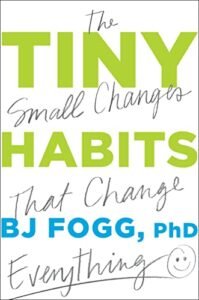|

|
Tiny Habits:
Keeping changes small and expectations low is how you design around fair-weather friends like motivation and willpower.
|
9 |
|
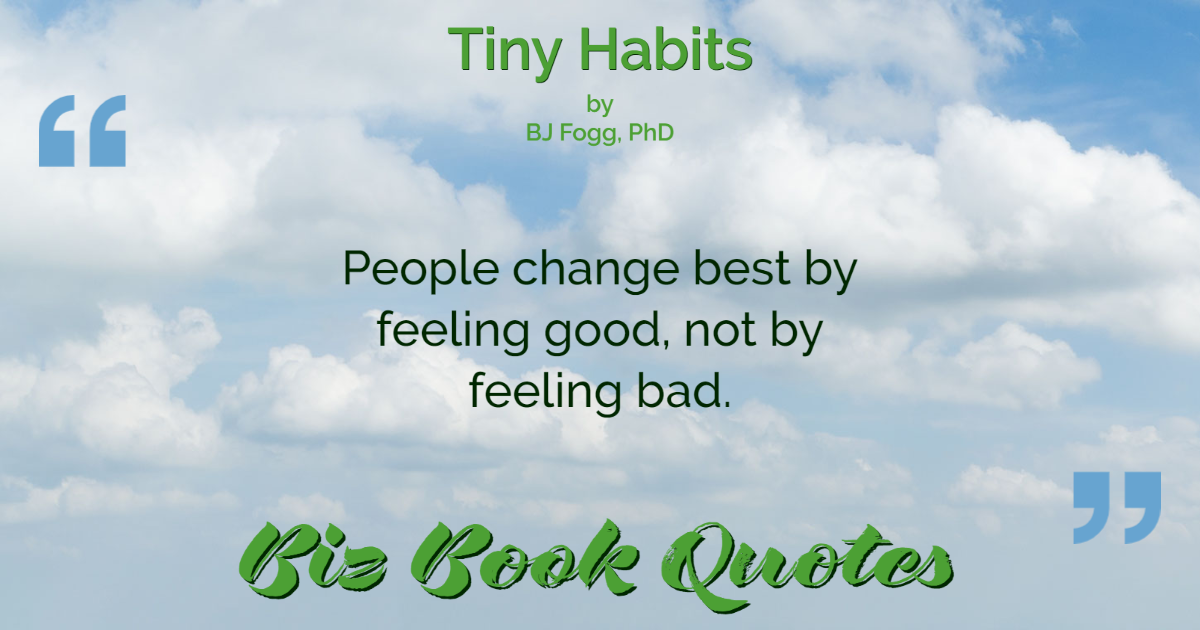
|
Tiny Habits:
People change best by feeling good, not by feeling bad.
|
17 |
|
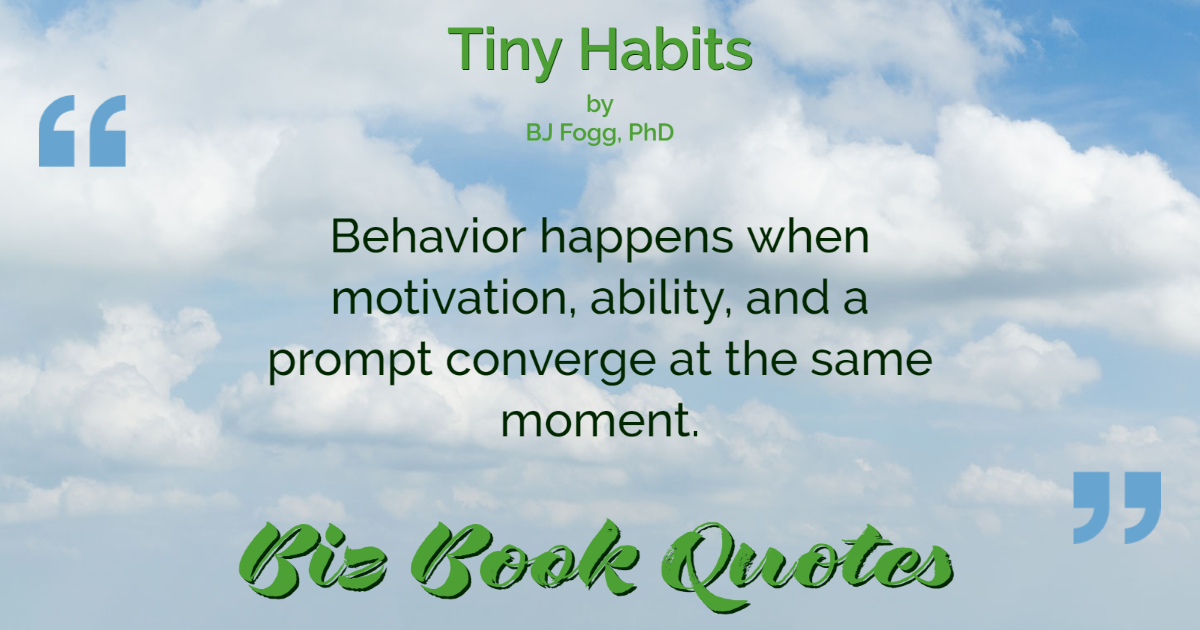
|
Tiny Habits:
Behavior happens when motivation, ability, and a prompt converge at the same moment.
|
19 |
|
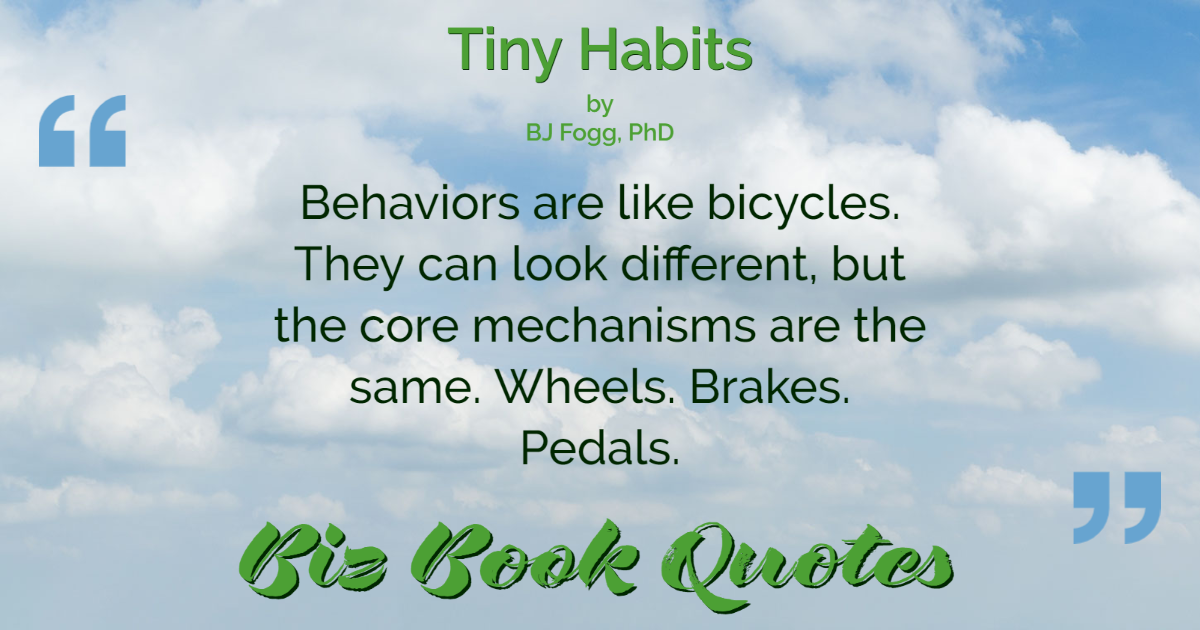
|
Tiny Habits:
Behaviors are like bicycles. They can look different, but the core mechanisms are the same. Wheels. Brakes. Pedals.
|
21 |
|
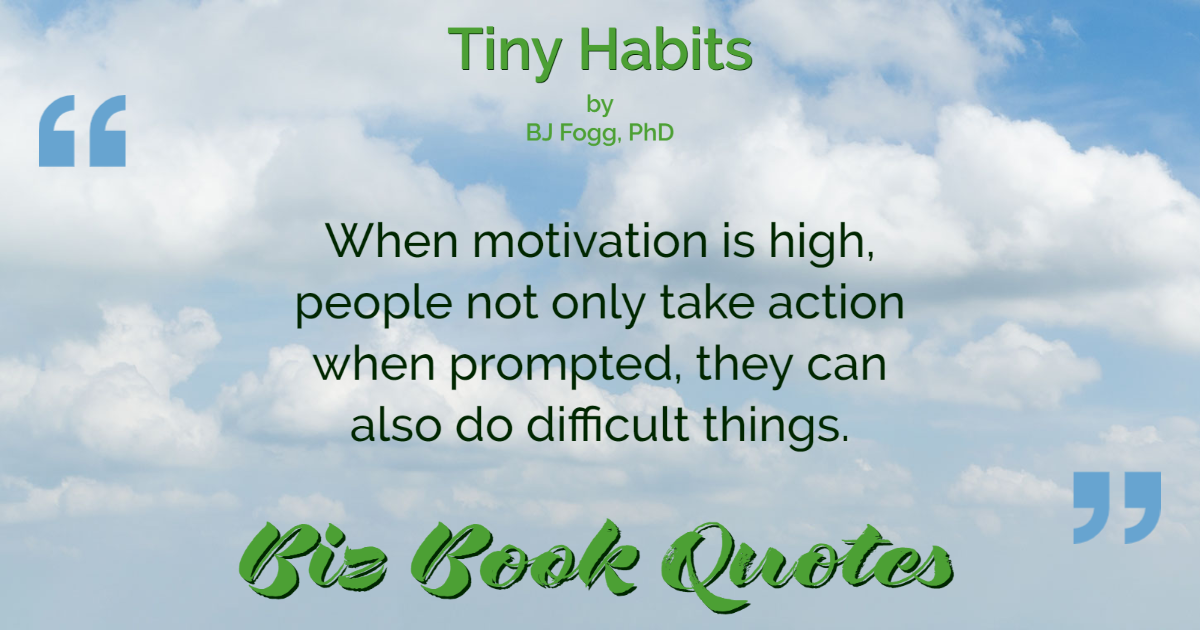
|
Tiny Habits:
When motivation is high, people not only take action when prompted, they can also do difficult things.
|
26 |
|

|
Tiny Habits:
When motivation is middling, people will do a behavior only if it’s fairly easy…
|
26 |
|
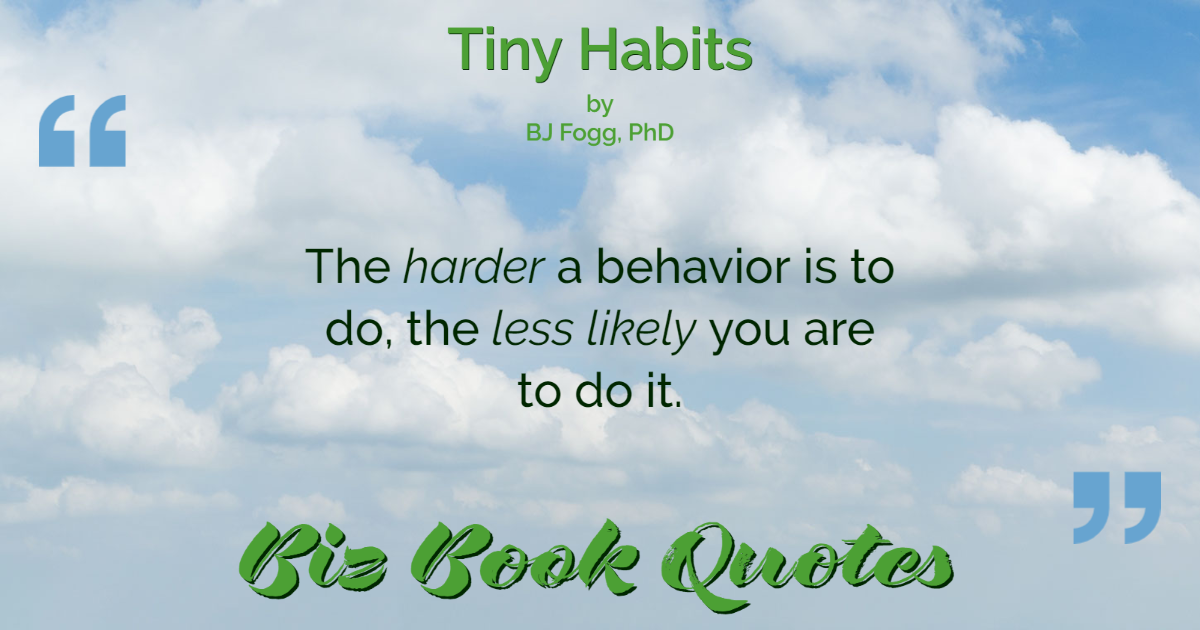
|
Tiny Habits:
The harder a behavior is to do, the less likely you are to do it.
|
26 |
|
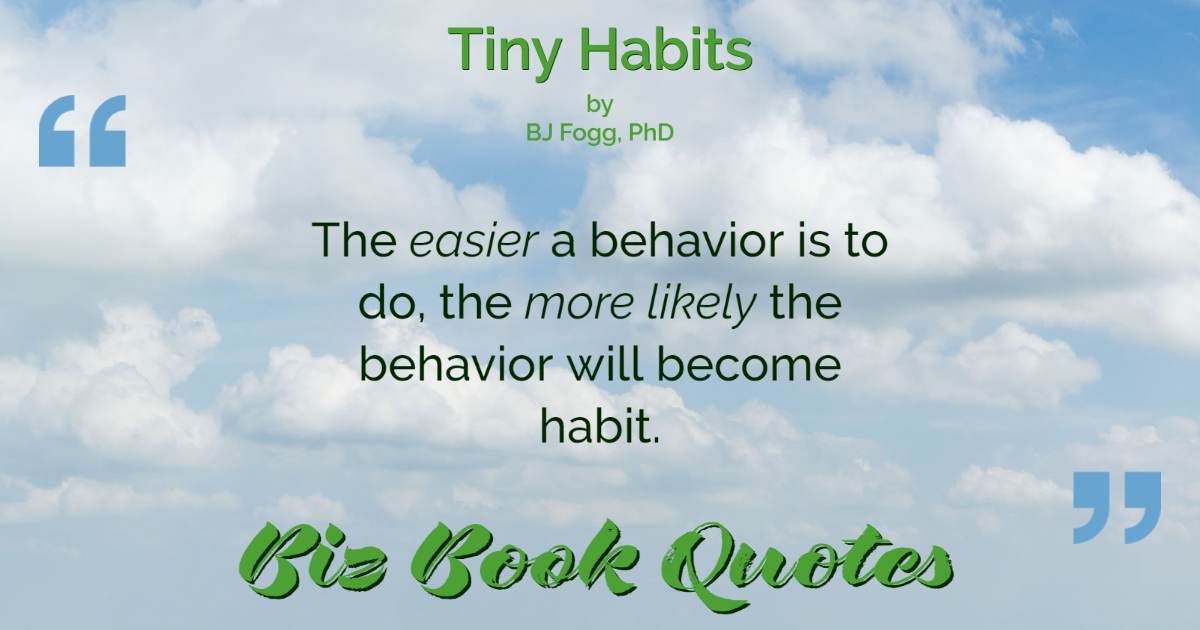
|
Tiny Habits:
The easier a behavior is to do, the more likely the behavior will become habit.
|
26 |
|
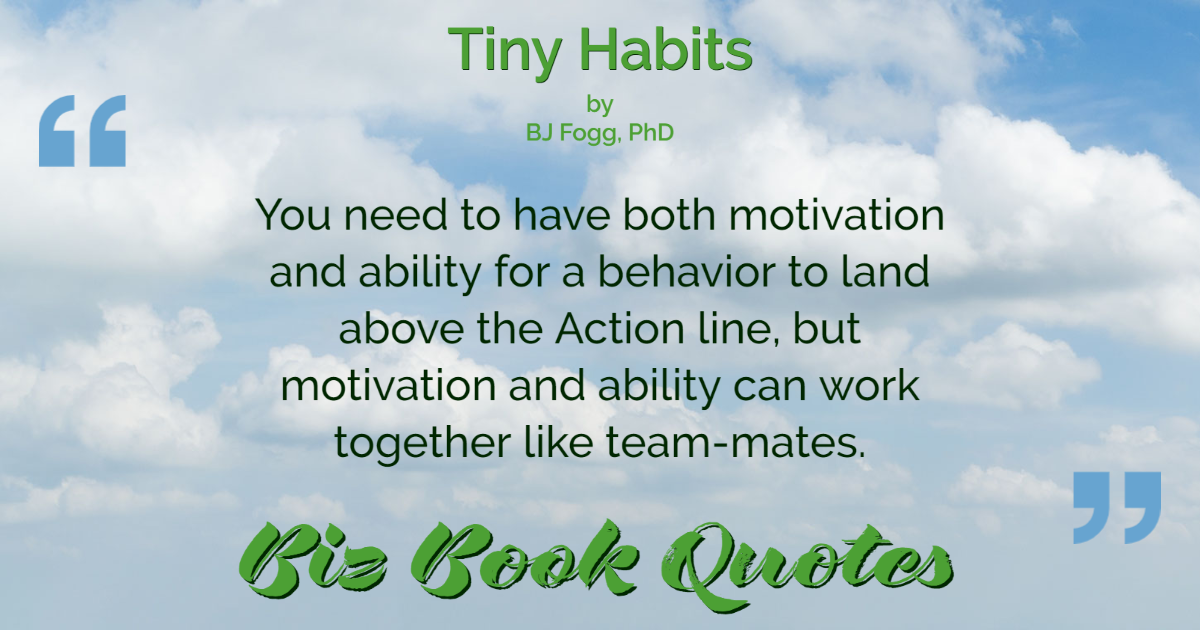
|
Tiny Habits:
You need to have both motivation and ability for a behavior to land above the Action line, but motivation and ability can work together like team-mates.
|
27 |
|
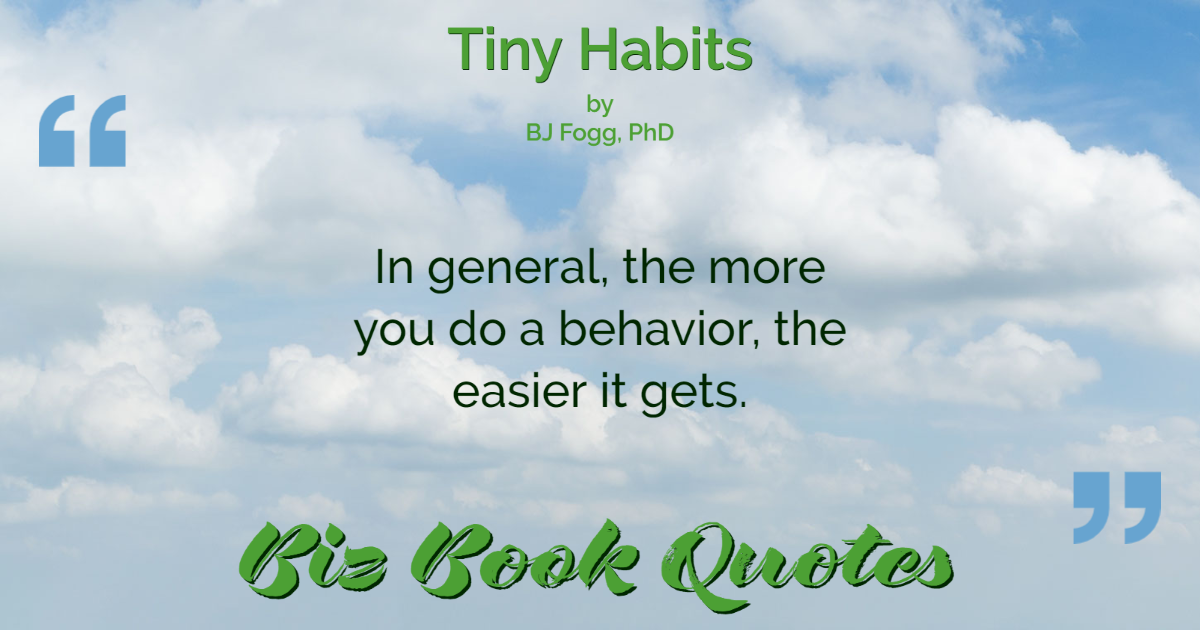
|
Tiny Habits:
In general, the more you do a behavior, the easier it gets.
|
27 |
